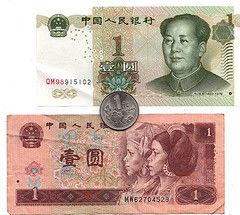David Barboza covers two opposing sides in the ongoing U.S.-China currency spats in the NY Times today. We commend Barboza for highlighting the perspective of U.S. importers and the consumers who buy from them, interests we rarely hear over the loud voices in the media, politicians and U.S. manufacturers calling for China to let the yuan appreciate. In particular, he profiles PS Brands http://www.importgenius.com/importers/ps-brands-llc.html), one of the largest sock importers in the country. A devalued dollar will dramatically increase the company’s costs, and its unlikely they could pass the entire difference on to the consumer. Indeed, the fear of a strongly devalued U.S. dollar has made Chinese manufacturers reluctant to sign contracts longer than 30-40 days. PS Brands story is all too common, yet rarely reported on. Cheap Chinese currency has subsidized the American way of life, allowing Wal Mart to sell the “necessities” for ridiculously low prices. A revaluation would like cause a major retrenchment of the American retail sector, resulting in massive job losses and higher prices for customers. The side of the debate we are more used to hearing about is that of American exporters (yes, there are still a few left). In his article, Barboza highlights the story of Staco Systems, who sells parts to state-owned aviation companies in China. A stronger yuan would make Staco’s products much more attractive to Chinese buyers and should help boost sales dramatically. America’s recent “Quantitative Easing” (a.k.a. printing money and giving it to investors) has already caused the dollar to drop compared to other major currencies. Compared to the Renminbi, however, it’s seen only a moderate decline because Beijing continues to sell its vast horde of dollars at a fixed rate of about 6.63 RMB per dollar. As long as investors have confidence in Beijing’s ability to continue making this sale, China has the power to peg its currency to the U.S. dollar. With over a trillion dollars in foreign currency reserves and huge trade surpluses, nobody is doubting China’s ability to make good on its promise to continue selling its dollars. Unless of course the political pressure from Washington and other major powers starts to damage trade relations and force China’s hand. President Obama chided China on its currency policy last week at a summit meeting in Seoul. He asked that they act more responsibly, saying the undervalued Renminbi is “an irritant to a lot of China trading partners and those who are competing with China to sell goods around the world”. China’s retort was that between 2005 and 2008 the Renminbi rose 20%, but had little effect as the U.S. trade deficit with China continued to widen. The Chinese seem to be arguing that the U.S. is just making excuses for a lazy workforce that can’t compete in a globalized world. We’ll be following the currency U.S.-China debate closely, as it will have major implications for our clients and our trade data business.
The Other Side of the Chinese Currency Debate
